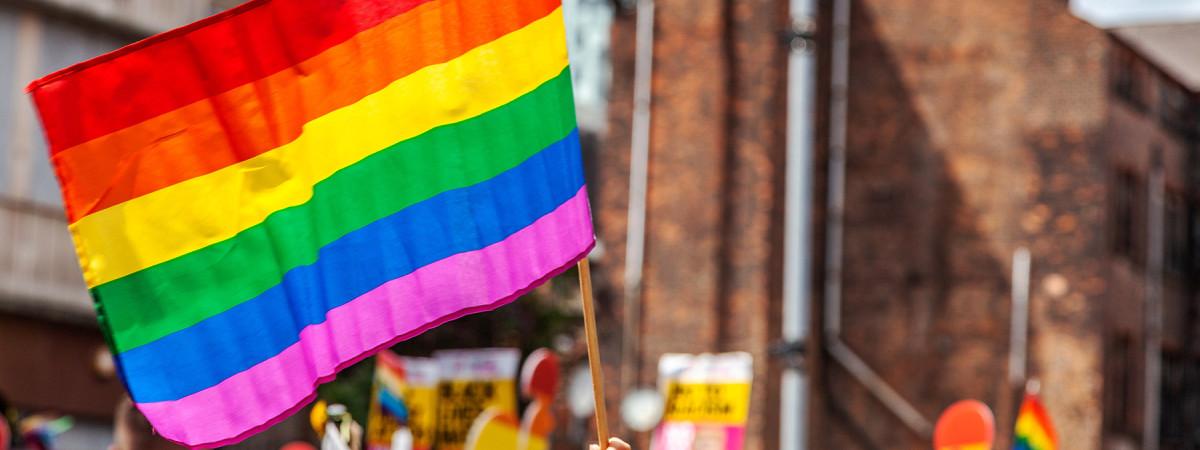
Key Points
- There is an increasing amount of legislation targeting the LGBTIQ+ community worldwide.
- Companies are now expected to ensure the health and well-being of their workers in countries where the rights of LGBTIQ+ people to exist are under threat.
- The PGLE team highlights seven key actions business can take to create lasting impact.
For many around the world, June marks Pride Month, an opportunity to remember the struggles faced by the LGBTIQ+ community as well as to recognize progress in advancing equality for LGBTIQ+ individuals. We have seen important milestones in the past decade: marriage equality is now in law in over 30 countries, many more have the recognition of same-sex couples in law, and more countries are adopting progressive legislation recognizing the rights of trans and non-binary people.
At the same time, there is an increasing amount of legislation that targets LGBTIQ+ individuals. In the last few weeks, the Parliament of Uganda adopted the Anti-Homosexuality Act, mandating the death penalty for “serial offenders” against the law and 20-year sentences for “promoting” homosexuality. In Turkey, newly reelected President Erdogan declared that the country was “against LGBT,” prompting fears that the government may seek to shut down LGBTIQ+ organizations; and in the US, several states have adopted—or are considering—legislation restricting access to gender-affirming care for trans individuals.
Many companies recognize Pride Month and highlight their own efforts to promote LGBTIQ+ inclusion within the workplace and support for the community more broadly. Scrutiny of these efforts has increased, however, with growing concerns that this could amount to little more than “rainbow washing.” Simply adopting a rainbow version of a logo on social media or launching temporary Pride-themed products is no longer seen as sufficient in a world where LGBTIQ+ individuals face persecution, harassment, and worse.
Activists, customers, employees, and investors expect companies who outwardly support the LGBTIQ+ community to make substantive, meaningful changes and decisions that genuinely advance LGBTIQ+ equality, even when this might affect their bottom line. In the US, survey data (from Morning Consult/BSR) found that Gen Z was nearly twice as likely as older generations of Gen Xers and Boomers to say laws and policies protecting LGBTIQ+ people are the most important issue they consider when thinking about a decision to move to another state. Companies could face long-term impacts to their workforce if they stay quiet when their support could advance civil rights in the LGBTIQ+ community.
In this context, companies are expected to ensure the health and well-being of their workers in countries where being LGBTIQ+ can put them at risk of criminalization or discrimination. Companies are also expected to take a more public stance in support of LGBTIQ+ rights, especially by younger people, who increasingly make decisions about where to work based on a company’s approach to LGBTIQ+ equality. The criticism of companies who advertised in Qatar during the World Cup, for example, shows how companies who stay silent when LGBTIQ+ rights are undermined face public criticism.
Key Business Priorities
Beyond Pride Month, there are several actions business can take to create lasting impact for LGBTIQ+ individuals worldwide:
- Regardless of national legislation, ensure full equity in your policies and benefit schemes, and work with LGBTIQ+ staff groups and external organizations to identify gaps. This could include ensuring that partnership benefits (such as extended health coverage) are available for same-sex couples, that family leave policies equally benefit partners and children of LGBTIQ+ individuals, and that policies relating to gender account for the needs of trans people (for example, access to inclusive healthcare).
- Collaborate with other companies to identify common challenges via BSR’s Collaborative Initiative Partnership on Global LGBTIQ+ Equality (PGLE). This network of companies and civil society organizations works together to support businesses to respect the rights of LGBTIQ+ people, sharing best practices on issue like trans-inclusive benefits and calling out the harms to business of anti-LGBTIQ+ legislation.
- Encourage internal support networks for LGBTIQ+ employees, which can act both as a mechanism for support as well as help raise awareness within the company of LGBTIQ+ issues. Whether through such a network or otherwise, find a way for any issues or concerns by LGBTIQ+ individuals to be raised in a safe and supportive way. Networks for allies of LGBTIQ+ people can also help show that the staff are inclusive and welcoming.
- Analyze publicly available resources like ILGA’s Database to understand the local context of countries where your company operates and the particular challenges that LGBTIQ+ people face, such as a lack of legal recognition of same-sex relationships or an absence of anti-discrimination legislation protecting LGBTIQ+ people in the workplace. Use this information to inform internal workplace practices and ways to meaningfully and responsibly engage in public policy discussions.
- Connect with “on-the-ground” LGBTIQ+ organizations in countries where the company operates. Most countries around the world have local organizations fighting for LGBTIQ+ equality and building relationships and other forms of support for these groups can help advance progress, as well as help you gain further insight into the situation for LGBTIQ+ individuals in that country.
- Engage privately and publicly in debates around national laws and policies, whether in force or under consideration, which would expand or restrict LGBTIQ+ rights. Many business-focused coalitions engage on public policies collectively, such as the Human Rights Campaign’s Business Coalition for the Equality Act in the US.
- Become a supporter of the UN Standards of Conduct for Business Tackling Discrimination against LGBTIQ+ People. As a follow up step, use the LGBTIQ+ Standards Gap Analysis Tool to learn where gaps exist and what steps you can take to fully meet the expectations of the UN Standards. For some companies, gaps might exist in their internal protections for LGBTIQ+ employees, such as policies or benefits which are not fully inclusive of the needs of LGBTIQ+ individuals. For other companies, gaps might exist in their due diligence processes when considering potential risks to LGBTIQ+ people connected to their products and services.
Pride Month in 2023 takes place at a turbulent time for LGBTIQ+ people, with progress toward equality in some parts of the world and regression in others. At the same time—and perhaps because of the regression seen in many countries—stakeholders are setting ever-higher expectations of companies to “walk the walk” and not just “talk the talk” when they commit to LGBTIQ+ equality. The suggested actions listed above are just some of the ways that companies can make real progress and demonstrate meaningful actions. If you would like to find out more about how to advance LGBTIQ+ equality, contact the PGLE team.
Topics
Collaborative Initiatives
Let’s talk about how BSR can help you to transform your business and achieve your sustainability goals.








